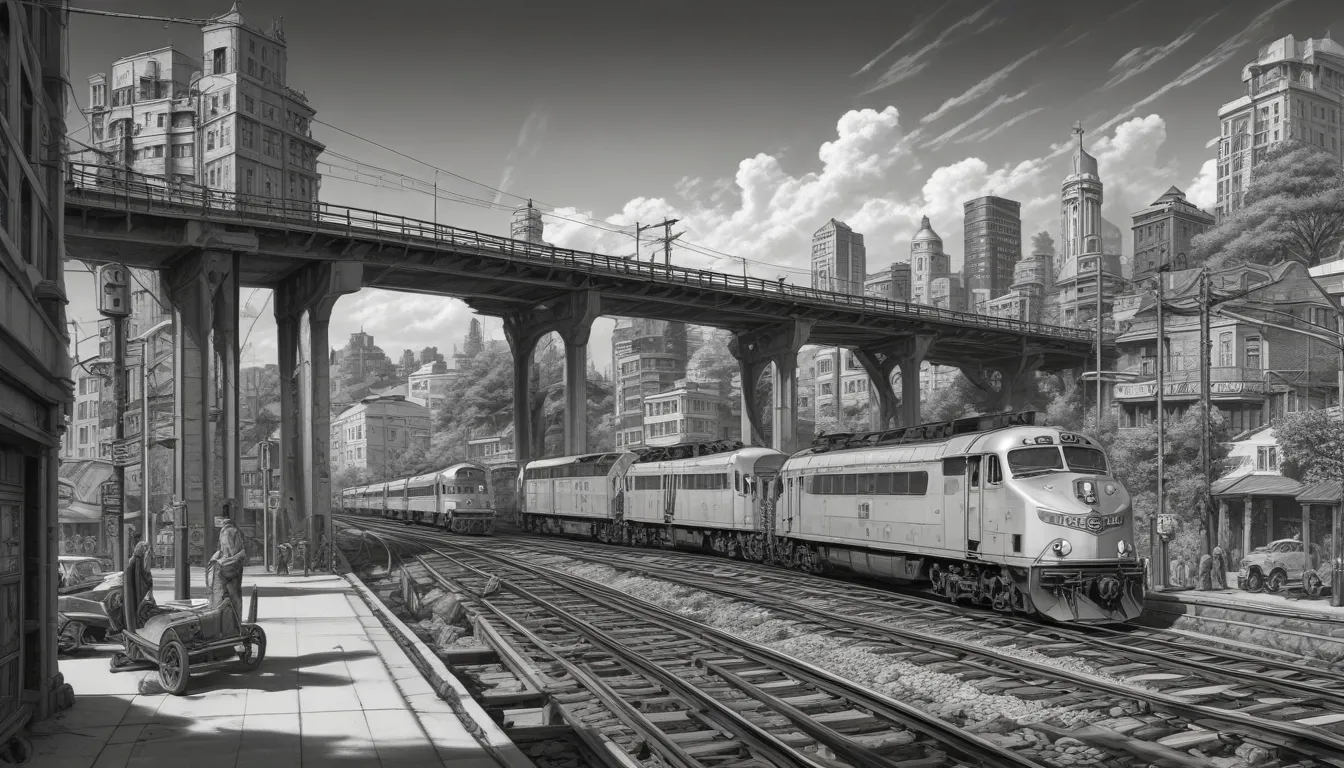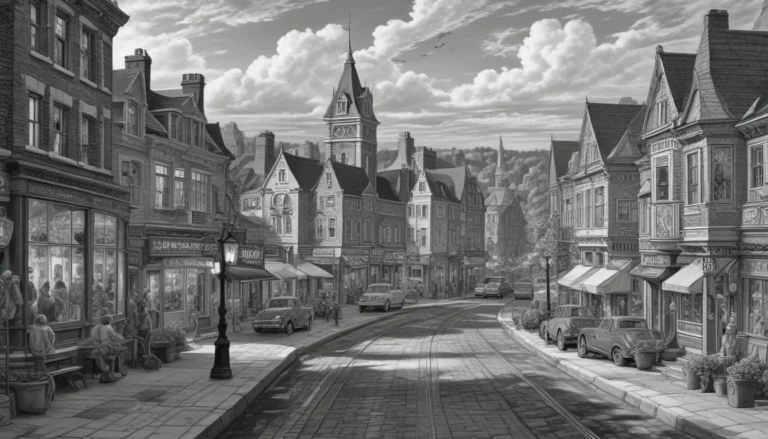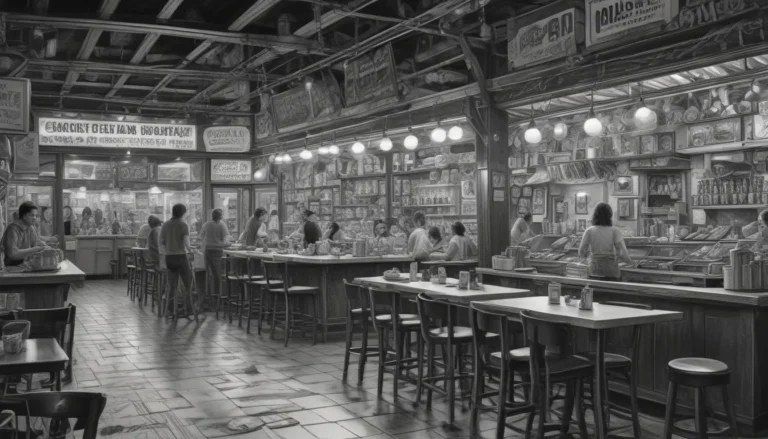The images in our articles are for illustrative purposes only and may not exactly match the content. They are intended to capture your interest and complement the text, not to replace it.
Welcome to Everett, Washington, a city steeped in history and poised for a bright future. Nestled in the heart of the Puget Sound region, Everett boasts a robust transportation and infrastructure system that serves as the lifeblood of the city. From its sprawling road network to its cutting-edge public transportation options, Everett’s infrastructure shapes the city’s identity, fosters economic growth, and enhances the quality of life for its residents. In this article, we will explore 8 fascinating facts about transportation and infrastructure in Everett, Washington, shedding light on the city’s innovative initiatives, key developments, and the impact of these systems on the community.
Key Highlights:
- Everett, Washington is home to the largest public marina on the West Coast, supporting maritime trade and recreational boating, contributing to the city’s economy and transportation network.
- The city’s transportation infrastructure includes a regional airport, extensive public transit, major highways, and a focus on sustainable travel options, enhancing accessibility and connectivity for residents and visitors.
Everett’s Impressive Public Marina
Did you know that the Port of Everett operates the largest public marina on the West Coast? This thriving marina boasts 2,300 slips and serves as a vital economic hub by facilitating maritime trade and recreational boating. As a major transportation center, the Port of Everett plays a crucial role in supporting the local economy and enhancing the city’s infrastructure.
Extensive Public Transportation Network
Everett prides itself on its extensive public transportation system, which includes buses and paratransit services. These essential mobility options cater to the diverse needs of residents and visitors, contributing significantly to the city’s accessibility and connectivity. The public transit network is a cornerstone of Everett’s transportation infrastructure, ensuring that everyone can travel conveniently within the city.
Aerospace Industrial Center
At the heart of Everett’s economy lies a major aerospace industrial center, home to the Boeing Company’s largest manufacturing plant. This facility is renowned for assembling wide-body commercial airplanes, serving as a key economic driver for the city. The aerospace industry plays a pivotal role in Everett’s infrastructure, supporting jobs, innovation, and growth.
Intersection of Major Highways
Strategically located, Everett is intersected by multiple major highways, including Interstate 5 and State Route. These essential roadways form the backbone of the city’s transportation network, connecting Everett to neighboring urban centers and facilitating the movement of goods and people. The highways play a critical role in enhancing accessibility and ensuring seamless travel within the region.
Deep-Water Seaport
The Port of Everett operates a deep-water seaport, providing vital access for maritime shipping and cargo transport. This bustling seaport serves as a gateway for international trade, bolstering the city’s economic vitality and cementing its position in the global transportation network. The deep-water seaport is a key asset that enables Everett to engage in global commerce and trade.
Regional Airport
Paine Field, Everett’s regional airport, plays a significant role in the city’s transportation infrastructure. This airport offers domestic air travel options, connecting travelers to various destinations and contributing to the region’s overall accessibility. Paine Field is a gateway for business and leisure travel, facilitating convenient air connections for residents and visitors alike.
Emphasis on Sustainable Transportation
In its commitment to sustainability, Everett has developed an extensive network of bike lanes and pedestrian pathways. These infrastructure enhancements promote active and eco-friendly modes of transportation, creating a healthier urban environment and reducing carbon emissions. By prioritizing sustainable travel options, Everett is striving to build a more vibrant and environmentally conscious city.
Robust Freight Railroads
Everett’s transportation infrastructure includes a robust system of freight railroads that facilitate the efficient movement of goods and commodities. These railroads play a crucial role in supporting the city’s industrial and commercial sectors, ensuring the smooth flow of freight within and beyond Everett. The efficient rail network is a key component of Everett’s logistics and transportation ecosystem.
Conclusion
Everett, Washington, stands as a testament to the power of well-developed transportation and infrastructure systems. From its bustling public marina to its aerospace industrial center, the city’s infrastructure plays a vital role in driving economic growth and enhancing the quality of life for its residents. With a focus on sustainability and accessibility, Everett is paving the way for continued growth and development. By investing in infrastructure projects and promoting sustainable transportation options, the city is creating a vibrant and inclusive urban environment for all.
FAQs
Q: What are the main modes of public transportation in Everett?
A: Everett offers a comprehensive public transportation system, including buses, paratransit services, and vanpools, providing convenient options for commuters and residents.
Q: How is Everett addressing traffic congestion and infrastructure maintenance?
A: The city is implementing various strategies, such as road maintenance programs, traffic management initiatives, and infrastructure upgrades, to alleviate congestion and ensure the efficient operation of its transportation network.
Q: Are there any major ongoing infrastructure projects in Everett?
A: Yes, Everett is actively involved in several infrastructure projects, including road expansions, bridge improvements, and public transit enhancements, aimed at enhancing connectivity and accommodating the city’s growth.
Q: What initiatives is Everett undertaking to promote sustainable transportation?
A: The city is focused on promoting sustainable transportation options, such as bike lanes, pedestrian-friendly infrastructure, and initiatives to reduce emissions, aligning with its commitment to environmental stewardship.
Q: How does Everett’s transportation system contribute to the city’s economic development?
A: A well-functioning transportation system is integral to Everett’s economic vitality, facilitating the movement of goods and people, supporting businesses, and attracting investment to the region.






